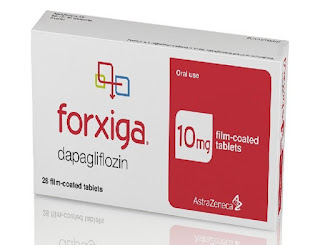What is methylphenidate?
Methylphenidate is a central nervous system stimulant that is commonly used in the treatment of attention deficit hyperactivity disorder (ADHD) and narcolepsy. It is a psychostimulant medication that affects certain neurotransmitters in the brain, specifically dopamine and norepinephrine. Methylphenidate is known to enhance focus and reduce impulsive behavior and hyperactivity in individuals with ADHD.
Key points about methylphenidate include:
Mechanism of Action:
Methylphenidate increases the levels of dopamine and norepinephrine in the brain. These neurotransmitters play a role in regulating attention, focus, and impulse control.
Forms and Brand Names:
Methylphenidate is available in various formulations, including immediate-release tablets, extended-release tablets, and extended-release capsules. Common brand names include Ritalin, Concerta, Metadate, and Daytrana (a transdermal patch).
Medical Uses:
The primary medical uses of methylphenidate are in the treatment of ADHD and narcolepsy. It is considered a first-line treatment for ADHD and is often prescribed as part of a comprehensive treatment plan that may include behavioral therapy and educational support.
Dosage and Administration:
The dosage and administration of methylphenidate depend on the specific formulation, the individual's age, and the severity of symptoms. It is usually taken orally, and the extended-release formulations are designed to provide a more sustained effect throughout the day.
Side Effects:
Common side effects of methylphenidate may include insomnia, decreased appetite, weight loss, increased heart rate, and potential mood changes. It can also cause more serious side effects such as increased blood pressure, and in rare cases, cardiovascular events.
Monitoring and Adjustment:
Patients taking methylphenidate may require regular monitoring to assess its effectiveness and identify and manage any potential side effects. Dosages may need adjustment over time.
Potential for Misuse:
Methylphenidate has the potential for misuse and abuse, especially among individuals without ADHD. It is a controlled substance due to its stimulant properties, and its misuse can lead to addiction and other health risks.
Interactions with Other Medications:
Methylphenidate may interact with other medications, including certain antidepressants and antipsychotics. It's crucial for healthcare providers to be aware of all medications a patient is taking.
Pediatric and Adult Use:
Methylphenidate is used in both pediatric and adult populations for the treatment of ADHD. The choice of formulation and dosage may vary based on age and individual response.
Methylphenidate is considered effective in managing the symptoms of ADHD and narcolepsy, but its use should be carefully monitored by healthcare professionals due to the potential for side effects and misuse.
How does it works?
Methylphenidate primarily works by affecting the levels of certain neurotransmitters in the brain, specifically dopamine and norepinephrine. The exact mechanism of action is not fully understood, but it is believed to involve the following:
Reuptake Inhibition:
Methylphenidate inhibits the reuptake of dopamine and norepinephrine in the synapses, the gaps between nerve cells where these neurotransmitters transmit signals. By blocking the reuptake process, more dopamine and norepinephrine remain in the synapse for a more extended period.
Increased Neurotransmitter Levels:
Dopamine and norepinephrine are neurotransmitters that play essential roles in various brain functions, including attention, focus, and impulse control. By increasing the levels of these neurotransmitters, methylphenidate enhances signaling in certain brain circuits associated with attention and behavior.
Enhanced Brain Activity:
The elevated levels of dopamine and norepinephrine result in increased activity in specific areas of the brain, particularly the prefrontal cortex. The prefrontal cortex is involved in executive functions such as attention, decision-making, and impulse control.
Normalization of Brain Function:
In individuals with ADHD, there is often an imbalance in the neurotransmitter systems, contributing to difficulties in attention and impulse control. Methylphenidate helps normalize these imbalances, leading to improved cognitive function.
Stimulation of the Central Nervous System:
As a central nervous system stimulant, methylphenidate also has an activating effect on the brain and body. This stimulation can help individuals with ADHD by increasing alertness and reducing hyperactivity.
It's important to note that while methylphenidate is effective in managing the symptoms of ADHD, its exact impact can vary among individuals. The medication is typically part of a comprehensive treatment plan that may include behavioral therapy, psychoeducation, and other interventions. The choice of formulation (immediate-release or extended-release) and dosage is determined by the healthcare provider based on the individual's needs and response to the medication.

.jpg)

Comments
Post a Comment